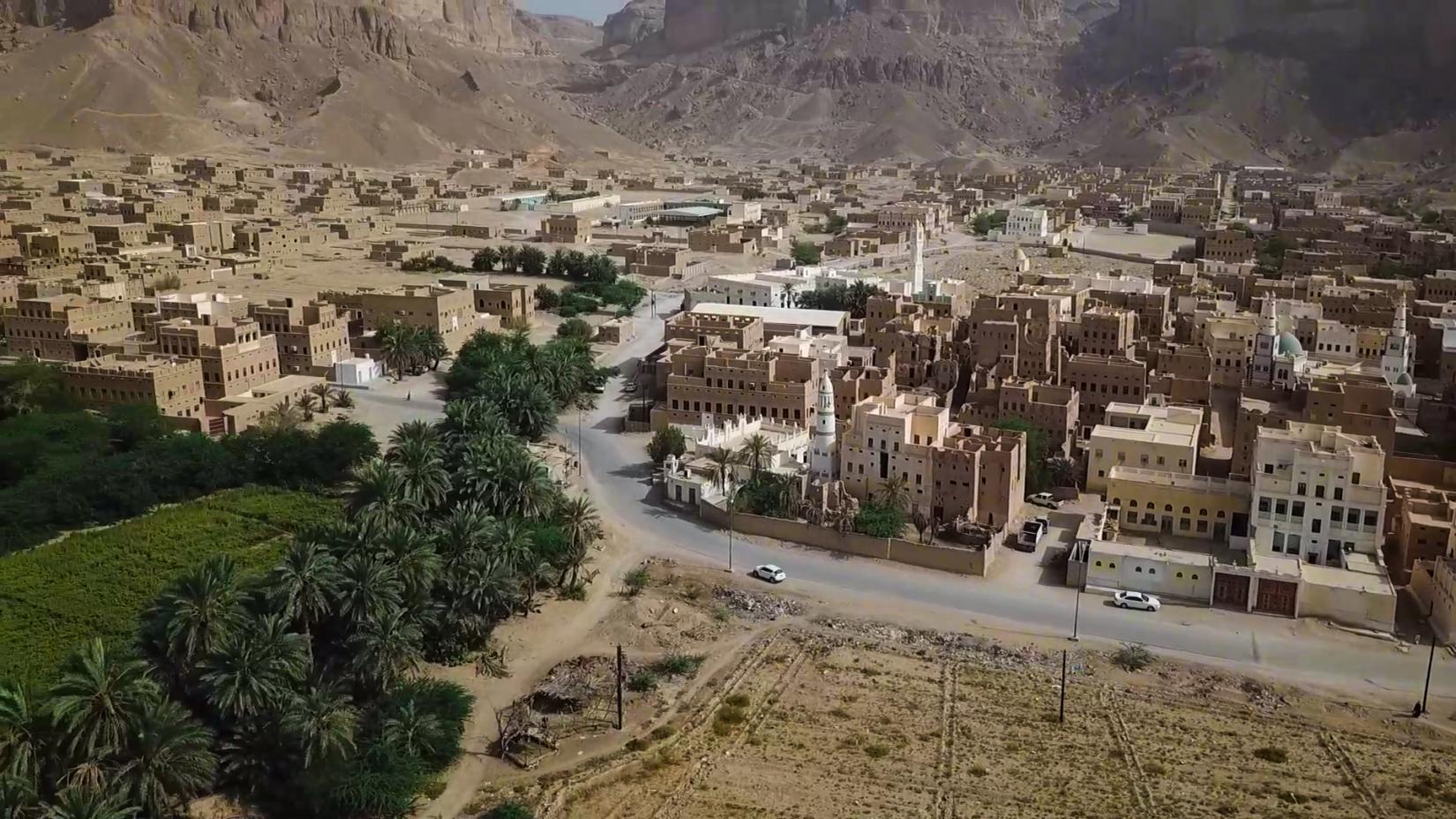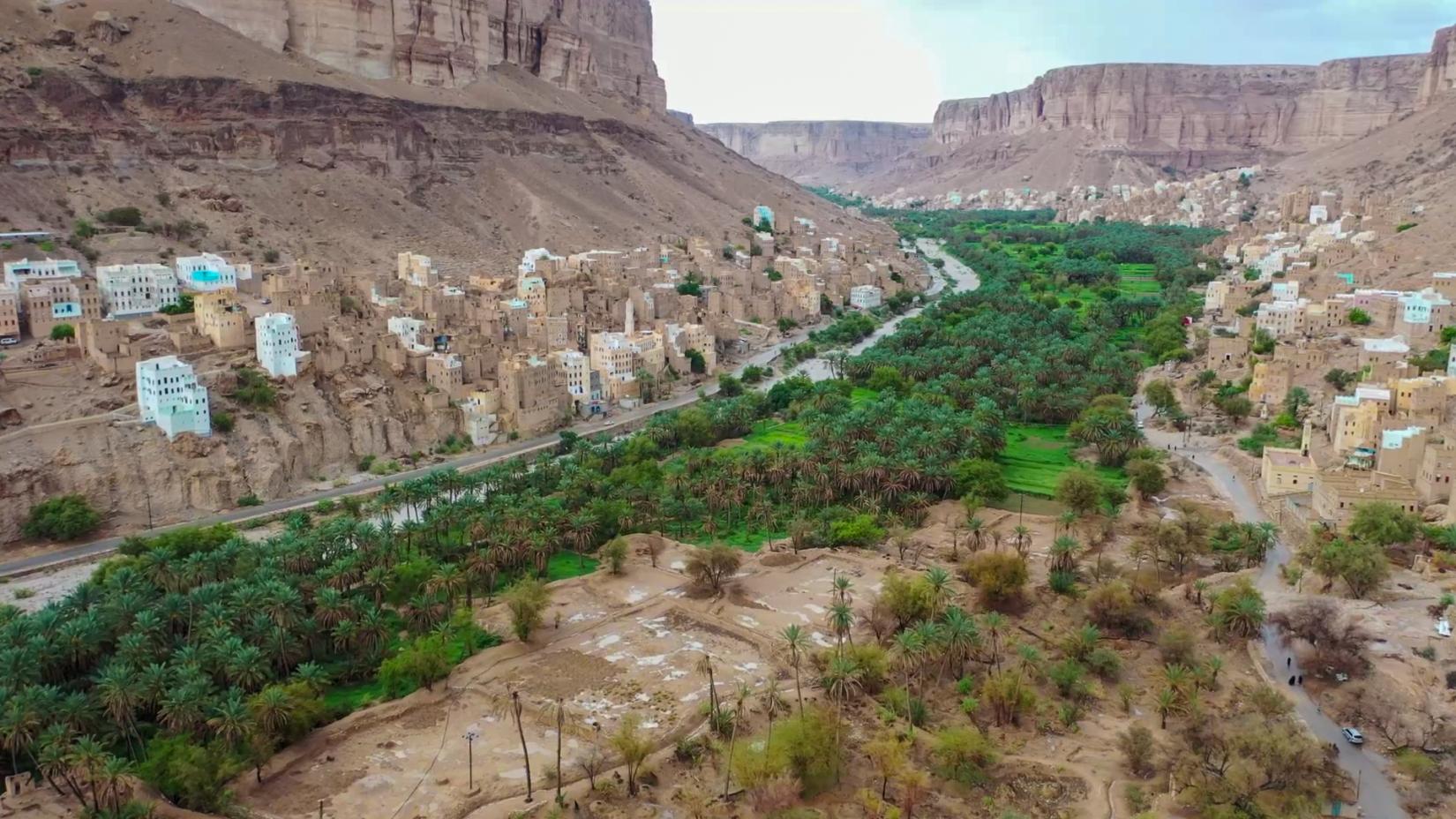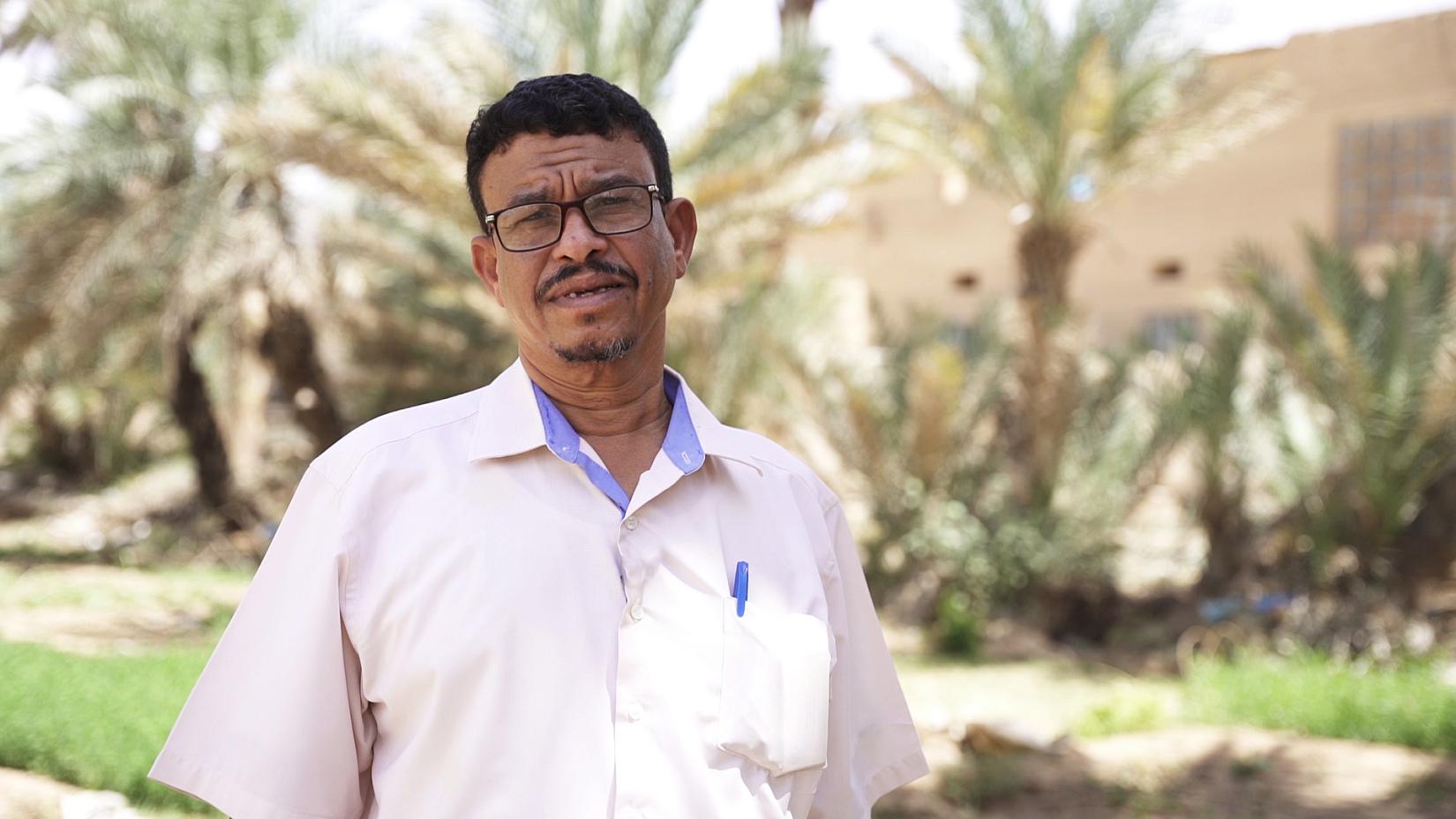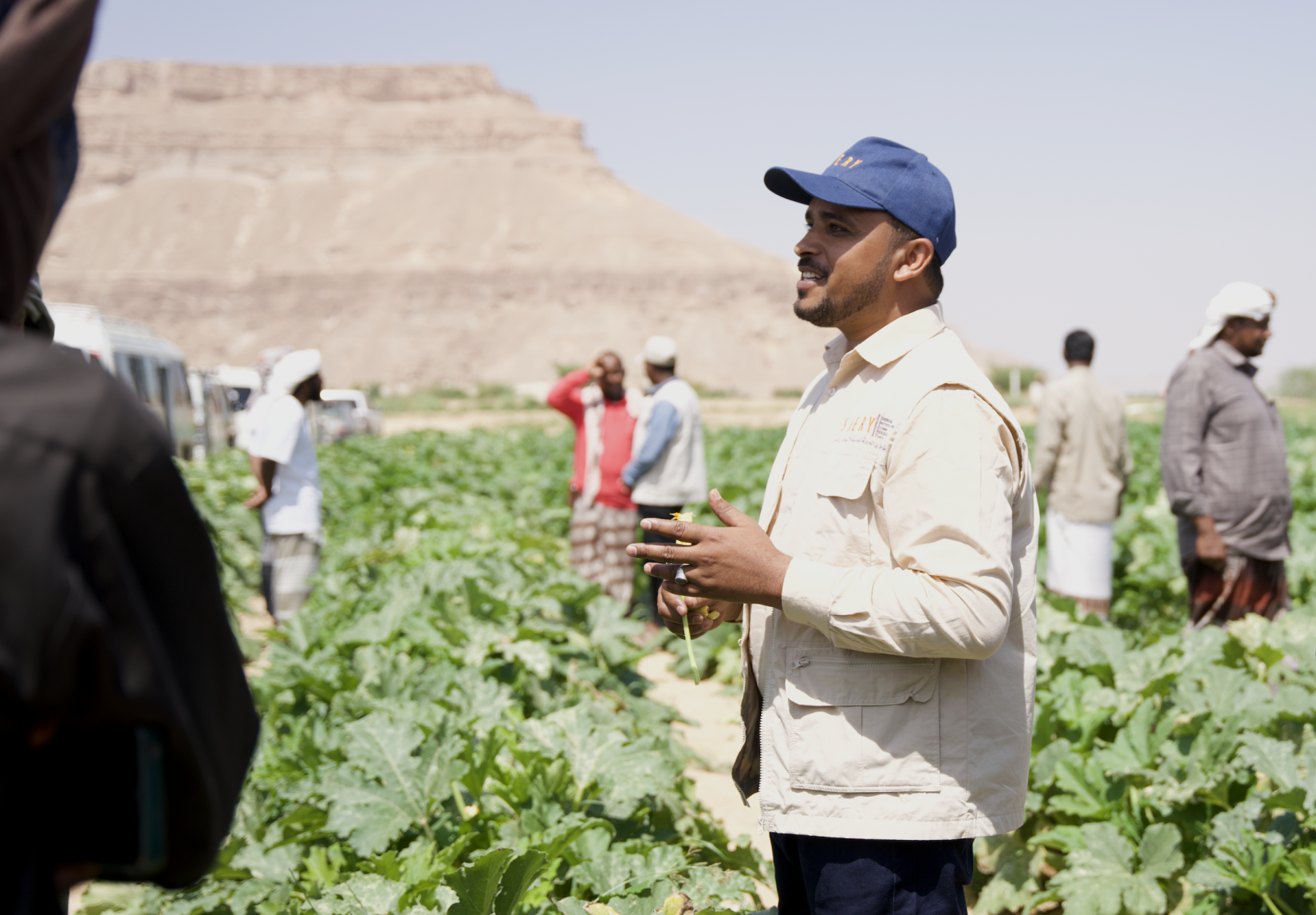How Modern Irrigation Techniques are Transforming Yemen's Agriculture Sector: A look at the impact of the SIERY project on World Water Day
How Modern Irrigation Techniques are Transforming Yemen's Agriculture Sector: A look at the impact of the SIERY project on World Water Day
March 22 marked World Water Day, an initiative by the United Nations to raise awareness about the importance of conservation and the repercussions of depletion and pollution. In Yemen, eight years of conflict have resulted in instability, the collapse of basic services, increased unemployment, and severe economic disruptions, particularly within the agricultural sector.
While only a small percentage of the country's food is domestically produced, nearly two-thirds of Yemenis depend on agriculture for their livelihoods. The sector's productivity has been negatively affected by water scarcity and the high cost of conventional irrigation methods. To address this, modern irrigation techniques are crucial in conserving water, especially since most farmers lack an understanding of resource management practices to reduce water consumption.

Although the district of Tarim – in Hadhramout governorate, eastern Yemen – is a green oasis with palm trees, it is exposed to seasonal floods and extreme heat waves that impact farmlands and crops. The authorities and the United Nations Development Programme’s project – Strengthening Institutional and Economic Resilience in Yemen (SIERY) – knew that something had to be done to save not only the farmlands, but also the livelihoods of members of the community.
Generously funded by the European Union, SIERY works across Yemen with local authorities to engage community members, the private sector, and civil society in decision making and planning that reflects the community’s needs from the ground up. The programme also helps to develop local authorities’ capacities to maintain, enhance, and expand upon its performance. To date, it has resulted in increased production, improved living conditions for farmers, and reduced irrigation and fertilization costs, which have greatly benefitted the local communities.
On World Water Day, an event was organized in Tarim for farmers and agricultural engineers to exchange experiences, and to urge farmers to make better use of the modern irrigation technologies that the program has made available.

An abundance of crops and profits
Adel Ruwished, a 36-year-old farmer from Wadi Al-Dhahab, used to cultivate palm trees using traditional irrigation methods. However, due to the country’s deteriorating conditions and the rise in petroleum and agricultural prices, these methods were becoming too expensive. Fortunately, Adel was able to improve his farming techniques by using modern irrigation networks and agricultural supplies. This change allowed him to “save water, resources, and increase crop production.” By switching from flood irrigation to drip irrigation, he has seen a significant reduction in costs while improving crop quality and increasing profits.
Producing crops efficiently and at low costs
While farmers are being encouraged to use alternative irrigation methods to address the problem of water scarcity, the challenge of producing crops efficiently and cost-effectively without wasting water remains.
Karama Obaid, a farmer from Damoun area of Tarim, has been using traditional irrigation methods through earthen channels for the past 60 years – despite the fact that they result in water loss from evaporation, are expensive, and require a lot of time and effort to oversee. Fortunately, after the project intervention, Obaid noted a positive change in his situation: “To my knowledge, each farmer has experienced increased production, reduced irrigation and fertilization costs, increased income, and improved living conditions.”
Improving irrigation networks
In an effort to conserve water, modern irrigation systems are used to cultivate crops that require small amounts of liquid over short periods of time, as opposed to flood irrigation. Shukri Bamousa, Director General of the Agriculture and Irrigation Office in the Valley and Desert of Hadhramout, explains how this project intervention has helped farmers to improve their irrigation networks and vegetable crop chains:
“Farmers in Tarim who grow vegetables, such as zucchini and onions, have greatly benefited from this system, as it provides the exact amount of water that the soil needs.”

Facing the risks of water depletion
To sustain plant growth, modern irrigation systems provide adequate water to the land and soil. These systems come in three types: drip, bubbler, and spray, which can conserve irrigation water by anywhere from 40% – 80% compared to flood irrigation.
Ali Abdulsalam, Project Officer at SMEPS in Hadhramout, recognizes the importance of World Water Day, particularly insofar as "the project supports farmers in palm and vegetable cultivation in the Tarim district, and reduces water depletion by up to 40% for cultivating palms and 80% for vegetable crops. The project made a significant difference for farmers, as evident from their increased profits and reduced costs that used to burden them,” he observed.

Adopting modern agricultural practices is essential in combating drought and climate change. Omar Ba Siddiq, a farmer in the Al-Sawari region of Tarim, confirms the impact of the SIERY project: "It made a significant difference because the drip irrigation system requires only a small amount of water, saving us money on diesel and labor costs while increasing production. The largescale attendance of farmers on World Water Day is evidence of the great benefit they have received from the project's support.”
Project outputs
The project aimed to promote modern irrigation systems in Yemen and has made significant accomplishments towards this goal. In the Ghayl Ba Wazir district, water canals for Henna farmers were cemented over a length of 2,866 meters instead of using dirt canals. This change resulted in water savings of 40% - 50%.
Tarim has benefitted from 31 irrigation pipes to date palm farms, with a total length of 5,456 meters (176 meters per farm). The use of irrigation pipes has resulted in water savings of 50% - 60% compared to dirt canals. Additionally, the project provided bubbler irrigation networks to 70 date palm farms in the Tarim district, leading to water savings of 70% - 80%. Furthermore, drip irrigation networks were provided to 300 vegetable farms in the Tarim and Al-Qatn districts, resulting in water savings of 50% - 70%. These achievements have led to increased production, improved living conditions for farmers, and reduced irrigation and fertilization costs. Overall, these changes have greatly benefitted the local communities.
On World Water Day, farmers attend SIERY's Project Event organized by UNDP & UNIC Sana’a to educate farmers on best practices for irrigation and groundwater conservation in Tarim District, Hadramout Governorate.



